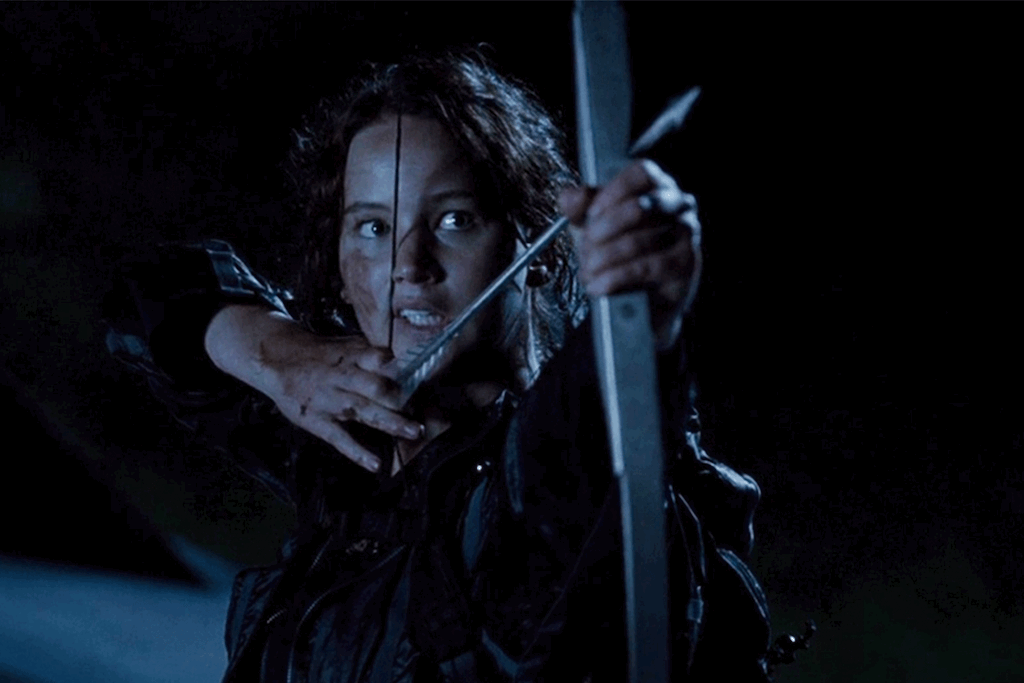The Real Reasons Why We Love To Be Terrified By Dystopian Stories
The apocalypse or a literal murder competition sure makes your problems seem less significant.


In an era where machines roam the land and mankind is no longer the dominant species, a young hunter named Aloy embarks on a journey to discover her destiny.
When your life is getting you down, why not cheer yourself up by imagining a much worse one? Say, a life lived after the zombie apocalypse has savaged Earth. Imagine your problems are gone, replaced with more primal problems… like finding food, avoiding dangers and deciding on your real friends and enemies.
For instance, in the new PlayStation 4 exclusive Horizon Zero Dawn, you play as female hunter Aloy whose mission it is to deal with the remnants of human life and figure out how to defeat deadly robotic beasts that freely roam a rewilded world. Awesome.
It may sound counter-intuitive to find escapist fun in worlds filled with war, despair, environmental ruin and violence. But there’s some intriguing science behind dystopia.
We Like To Be Able To Control The Fear
In post-apocalyptic stories everything we know is gone, which is terrifying. But if you’re suffering from trauma, anxiety or depression, you can find these stories satisfying. It’s somehow comforting to be able to control the fear.
“All of this uncertainty and all of this fear comes together and people think maybe life would be better,” Harvard Medical School child psychiatrist and novelist Steven Schlozman tells Scientific American. We yearn not just to escape our problems, but for a clean slate — a chance to start over.
Post-apocalyptic stories can actually help us prepare for our real future. Denise Caruso, a science policy researcher at Carnegie Mellon University, tells Smithsonian magazine: “science fiction helps [scientists] think about how the work they’re doing might eventually turn out”. When we imagine new social and economic systems, we’re making moral decisions about which ones might be the most fair and least harmful.
The animal-like robots made by MIT and Boston Dynamics are exciting and ingenious, but tech websites are reporting on them like they’re terrified the Terminator is coming for them. Here, we’re using a dystopian story to feel better about real technological changes. I mean, come on, this guy is gnarly!
Fiction can even help us prepare for real disasters. The US government’s Office of Public Health Preparedness and Response (a division of the Centers for Disease Control and Prevention) actually uses a zombie apocalypse as a teaching tool. It’s not that they actually believe the dead will rise to devour us… but it’s a great prompt for thinking what we might do in a crisis.
You Get To Choose Your Tribe… Or Make Your Own
Dystopian societies are popular in young adult fiction because teenagers are trying to distinguish themselves as individuals. But this is an alluring idea for anyone. Rather than being limited to your own family and community, trapped in a dead-end job or burdened with a preconceived identity, you can imagine starting over in an empty world.
In most post-apocalyptic societies, old allegiances have been wiped out. The dystopias that spring up afterwards have usually invented new initiation rituals that decide who’s in and who’s out — from the factional Choosing Ceremony in Divergent to the Ceremony of Twelve in The Giver and the occupational lottery in The City of Ember. In Horizon Zero Dawn, Aloy must train for the Nora tribe’s gruelling Proving ritual.
But the person who doesn’t fit in is always the true hero. It’s satisfying for us to see dystopian protagonists pushing back against their societies. The lesson we take away is that if we feel like misfits now, we can always find allies on our quest. And a true post-apocalyptic hero is the one who manages to unite disconnected tribes.
A Fantasy Of Ultimate Capability
Being an IRL post-apocalyptic badass is a serious lifestyle commitment. “I spend my time developing fitness, recreating outdoors, and making stuff with my hands,” writes Wes Stiler at adventure magazine Outside. “And because I’ve invested the time and effort to get really good … they’re skills I can rely on under pressure.”
The rest of us have movies, books, TV and videogames. We fantasise that when the trappings of civilisation are stripped away, so are all the rules holding us back. But this doesn’t mean dystopian stories are just for lazy couch potatoes! (Also, we’re uncannily gifted with a bow and arrow.)
Sociologists and developmental psychologists have found that the thing that most holds back people’s capabilities — their ability to do and be what they want — is growing up in poverty. It’s not that surprising. Interestingly, though, the kids who ‘beat the odds’ are those with psychological resilience. They can adapt to stressful situations, embrace change, reframe problems as challenges and bounce back from adversity.
These are skills we can practise while immersing ourselves in difficult but fictional circumstances. When we dive into dystopian worlds, we compare the protagonist’s choices with our own experiences and imagine how we’d do it better. The great thing about post-apocalyptic videogames is that you get to practise your skills and figure out how to achieve your ultimate destiny. With every play, you’re learning to be better.
—
Feature image: Hunger Games/Lionsgate Films
—
Want to escape to a distant future and experience the next era of mankind? Take things to the next level by exploring the post-post-apocalyptic world of Horizon Zero Dawn. The game is exclusive to PlayStation®4 and available on PS4™ and PS4™Pro. Learn more here